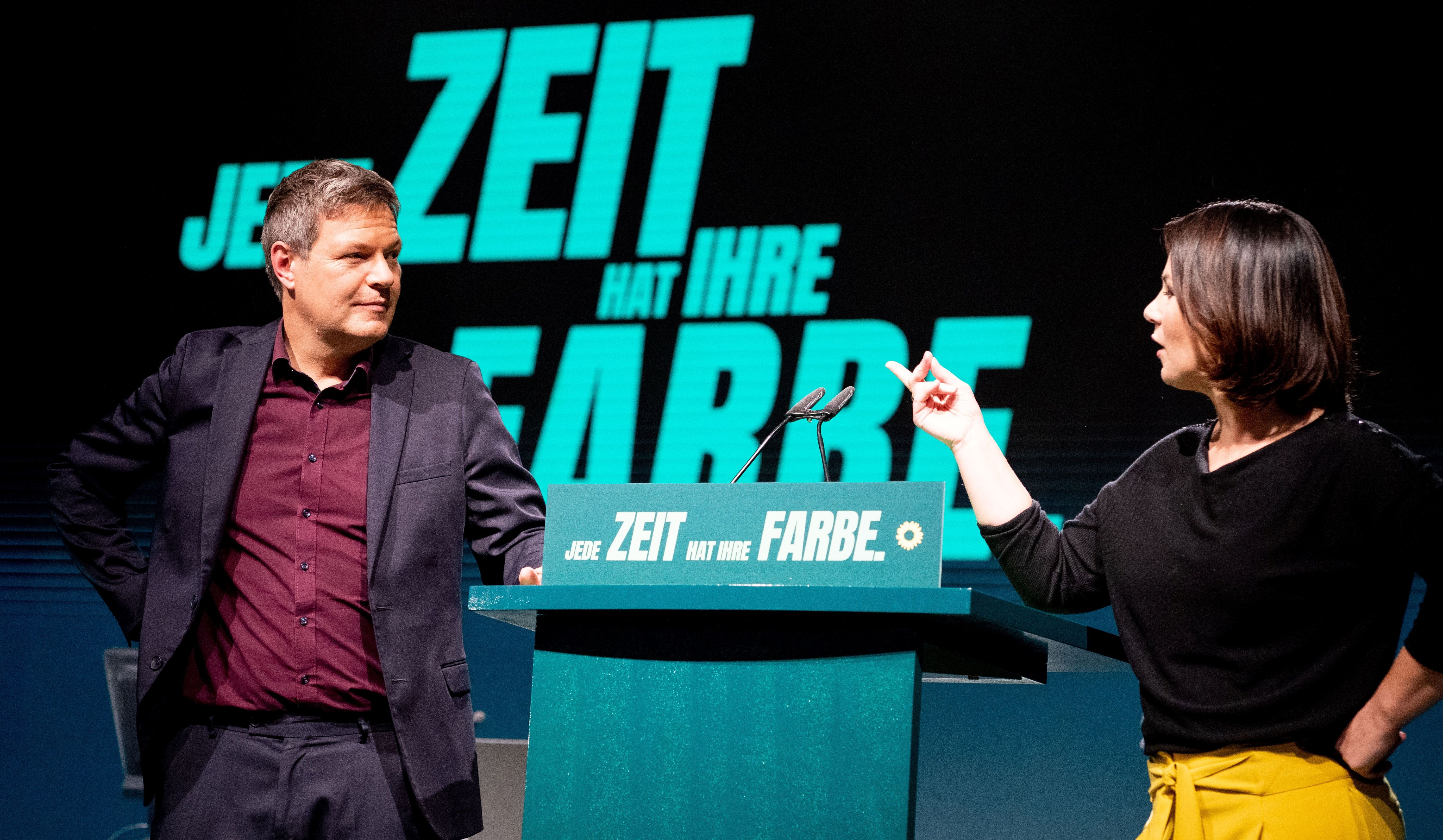“Change Creates Stability”: The Political Programme of the German Greens

During its digital congress at the end of November 2020, the German Greens adopted a new core programme, which is the starting point for the formulation of a more specific offer to voters for the September federal elections. The programme is the first step towards achieving the main goal in 2021: obtaining the best possible result in the elections to the Bundestag and joining the government coalition.
If the Greens manage to gain 18-20% of the votes, their decisions will determine the shape of the new cabinet: in one scenario, they could form a coalition with CDU/CSU, and in the second, as the lead party with SPD and Die Linke (the Left). However, winning this position requires maintaining the current electoral base (people aged 20-40, with higher education, mainly from cities and western federal states) and attracting new voters. The votes in previous elections shows that apart from the left-wing electorate of the SPD and Die Linke the Greens also have a chance to win votes from the Christian Democratic centre.
Domestic Policy
The Greens attempts to achieve this goal are reflected in declarations regarding climate policy. They traditionally support the transformation of the German energy sector towards the use of renewable sources and the further closing of nuclear and coal power plants. At the same time, the document includes a compromise declaration noting not rapid implementation but “getting on the path” to lowering the average temperature of the Earth by 1.5 degrees Celsius in line with the recommendations of the Paris Climate Convention and the report by the Intergovernmental Panel on Climate Change. On the one hand, this is to reassure young activists associated with the “Fridays for Future” movement and, on the other hand, voters who fear the costs of a radical reduction in CO2 emissions.
The Greens want to attract voters in the centre through the model of a “social and ecological market economy”. Its aim is to link the economy and ecology so that environmental protection leads to an increase in GDP and an improvement in the quality of life of citizens. An example is the complete decarbonisation of German industry, especially in key sectors such as automotive, chemicals, and machinery. This will enable the implementation of the climate policy postulates while modernising the German economy and creating new jobs. Digitisation of companies is to further these goals. Thus, the Greens are signalling entrepreneurs, pointing out that the party does not want to fight the free market and treats its principles as part of a reorganisation of the current economic system.
Support from the left-wing part of the Greens’ electorate is to be ensured through social goals, particularly by replacing the current unemployment benefit—the so-called Hartz IV, access to which is subject to numerous limitations—with an unconditional universal allowance, and ultimately a basic income. Maintaining the current ideological identity of the Greens is also to be confirmed by their vision of migration policy. The argue it should be easier to obtain citizenship: the only condition for a child born in Germany to obtain it would be the legality of one parent’s stay in the country without specifying the specific period (currently it is eight years). The party also calls for allowing foreigners to participate in elections and “other democratic processes”, which so far has been limited to EU citizens in local elections. In addition, the programme provides for a departure from the current restrictions on labour immigration such as abolishing conditionality in family reunification.
European and Foreign Policy
The Greens favour deepening EU integration and, in the long run, transforming it into a Federal European Republic based on the principle of subsidiarity, with a key role for the European Parliament. To achieve this goal, it is necessary to extend majority voting to all areas and equalise social standards across the EU in the form of harmonisation of minimum wage and security for the unemployed. The party also proposes to vary the pace of integration, provided that it is open to all countries at every stage.
An important point of the Greens’ foreign policy is to strengthen the global role of the EU. To this end, they call for the intensification of cooperation with other regional organisations and forums, such as ASEAN or the African Union. The Greens also propose to make the euro the leading currency, build a European payment system, and introduce a digital currency through the central bank. The EU’s global role is to be strengthened by its extensive military potential. Therefore, the party proposes to transfer funds from the defence budgets of the Member States to activate the cooperation of the armed forces and to equip common military units, as well as to consolidate and strengthen the command structure within the EU.
In the model proposed by the Greens, however, NATO will remain the guarantor of European security. Nevertheless, an alliance weakened by its members’ divergent interests must be given a new strategic direction. The statements of the party’s co-leader, Annalena Baerbock, indicate that the Greens do not reject further increases in the Bundeswehr’s budget, but are sceptical about reaching the level of 2% of GDP for defence spending. The Greens uphold the postulate that nuclear weapons should be withdrawn from German territory, which would mean Germany’s exit from NATO’s tactical nuclear-sharing programme. That demand is complemented by proposals for transatlantic relations: the Joe Biden presidency offers opportunities to strengthen cooperation in areas such as climate protection, strengthening democracy, digitisation, and trade. The party also proposes creating a joint U.S.-EU strategy towards China. The Greens support Germany’s withdrawal from the construction of the Nord Stream 2 gas pipeline and the implementation of the Eastern Partnership Security Compact initiative, which would strengthen the security of the EU’s eastern neighbourhood.
Conclusions
The document is an attempt by the Greens to maintain the ethos of a left-wing environmental party while distancing themselves from radical proposals that could discourage moderate voters. Therefore, the programme for the Bundestag elections will be crucial for winning over a new electorate: if the Greens present proposals for economic recovery in the spirit of social solidarity, but without harming businesses, they may persuade this group of voters. Formulating an offer in time for the election may be difficult because of the traditional dispute between the so-called realistic and fundamentalist wings of the party. This could be particularly problematic in coalition negotiations when the Greens will have to decide to what extent they are ready to compromise.
The content of the document is also a signal to the CDU as a potential coalition partner. The attempt to avoid specific declarations on climate issues and the vision of the economic model are to be the starting point for talks on the formation of a joint government. These views are also fostered by politicians who may seek to become the Christian Democrat candidate for chancellor: neither CDU leader Armin Laschet nor Bavarian Prime Minister Markus Söder have ruled out the possibility of concluding a coalition with the Greens.
The shape of the next coalition will determine the implementation of foreign policy postulates important from Poland’s perspective. The Greens will be willing to step up their activities in tandem with France and implement President Emmanuel Macron’s vision of European integration, but a co-government with the CDU will make it difficult to implement plans to federalise the EU. Security policy (nuclear sharing, the target of 2% of GDP for defence) and climate policy will also give rise to potential tensions. At the same time, Poland may count on the support of the Greens on policy towards Russia in selected areas, such as withdrawing Germany from the construction of NS2 or strengthening the security of the EU’s eastern neighbourhood. Should the Greens polling hold and the negotiations with the CDU fail, the likelihood of a left-wing coalition with SPD and Die Linke will increase. This would stand in the way of the implementation of the Greens’ initiatives regarding Russia and could weaken Germany’s military and financial commitment within NATO.


